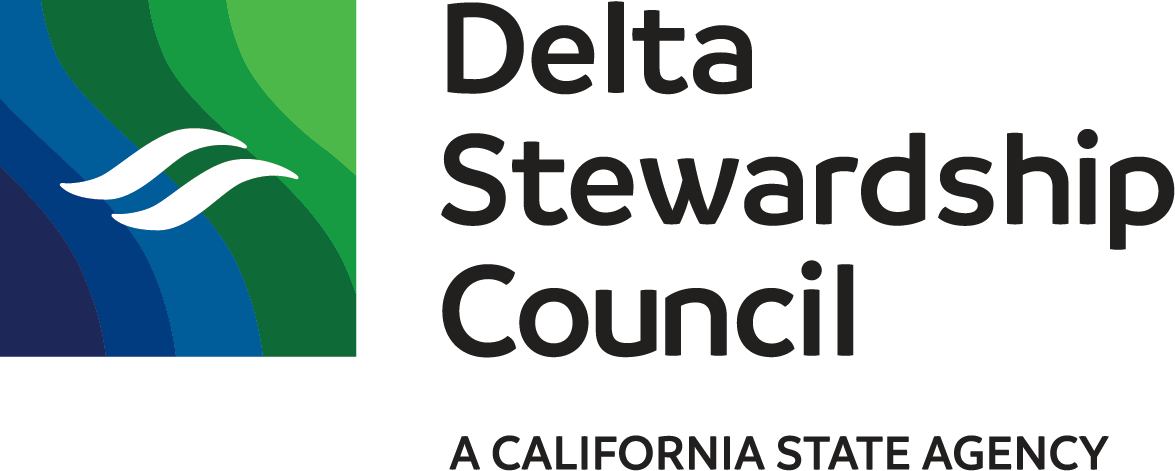Science Communication
The Delta Science Program recognizes that communication is essential to building the Delta science community and delivering pertinent information to scientists, decision-makers, the public, and other stakeholders. Effective science communication transforms information into knowledge, and knowledge into action. The Delta Science Program communicates science to a wide range of audiences through hosting events, supporting various publications, and generating outreach materials.
Events
The Delta Science Program organizes and sponsors conferences, seminars, symposia, workshops, reviews, interagency forums, and other events. View our events calendar and subscribe to receive email announcements.
Bay-Delta Science Conference
The biennial Bay-Delta Science Conference is jointly sponsored by the Delta Stewardship Council and U.S. Geological Survey as a forum for presenting scientific analyses and results relevant to the management of the San Francisco Bay and Sacramento-San Joaquin Delta. The goal of the conference is to provide new information and syntheses to the broad community of scientists, engineers, resource managers, and stakeholders working on Bay-Delta issues.
The 2024 Bay-Delta Science Conference will be held in person on Sept. 30 - Oct. 2. The theme is “Cultivating Connections for a Dynamically Changing Environment.” Learn more on BayDeltaScienceConference.com.
Seminars
The Delta Science Program hosts seminars as opportunities to share information among Delta scientists and stakeholders. They are free and open to the public.
Symposia
1-2 day long symposia increase knowledge among Delta stakeholders. They are often in partnership with UC Davis Coastal and Marine Sciences Institute and are free to the public. Many produce synthesis documents.
Workshops
Workshops unite scientists, managers, and other stakeholders towards unified goals. Workshops are also used to inform science synthesis efforts.
Reviews
Reviews bring together independent scientific experts to ensure credible and legitimate science is available to decision-makers.
Interagency Forums
Interagency forums facilitate collaboration on science and management efforts. Examples include the Integrated Modeling Steering Committee and Interagency Adaptive Management Integration Team.
Delta Science Tracker
The Delta Science Tracker is intended to be a mechanism of communication to a broad audience, including technical users (e.g., academic & agency scientists), decision-makers (e.g., program and resource managers, Council or other board members, legislative staff), and various other stakeholders (e.g., the public). This online tool that hosts a comprehensive inventory of scientific research and monitoring activities conducted in the Delta.
Publications
Delta Breeze Newsletter
The Delta Science Program publishes the Delta Breeze newsletter to highlight projects and upcoming opportunities funded by the Science Program and its partners.
San Francisco Estuary and Watershed Science (SFEWS)
SFEWS is an open access, peer-reviewed, academic journal that publishes research about the science and resource management of San Francisco Bay, the Sacramento-San Joaquin Delta, and the upstream watersheds. The journal is funded by the Delta Stewardship Council, with support from the UC Davis John Muir Institute of the Environment and the eScholarship Publishing group.
Estuary News
The Delta Stewardship Council is a core funder of Estuary News. This quarterly publication has been in operation for over 25 years and reports on a wide range of Delta and San Francisco Estuary watershed news. It is available in print and online.
Maven’s Notebook
Maven’s Notebook is an independent website that covers California water news. It features original news as well as curated content. It focuses on the major water planning processes currently underway in California as well as the latest developments in Delta science. The Delta Stewardship Council provides funding for Maven’s Notebook.
Nutria Pocket Guide
During a California Department of Fish and Wildlife interagency nutria coordination meeting in the fall of 2018, county agricultural commissioners and federal, state, and county agencies and organizations expressed the need for nutria outreach materials. The group requested a pocket-sized, field-friendly identification pamphlet that can be widely distributed to landowners, field staff, and other interested members of the public.

